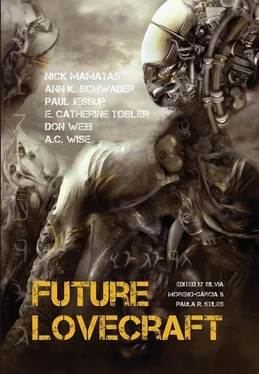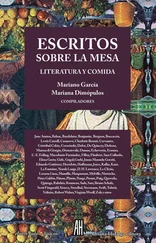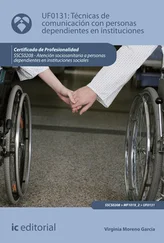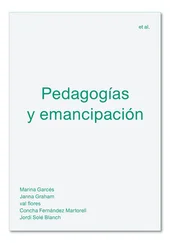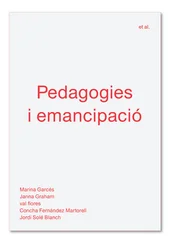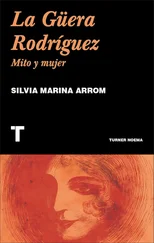Then Dicle crested a hill, as the sun climbed as high as it could in the white-hot sky, and when she looked down into the valley, her eyes started to hurt from too much brightness. Ouch! But that was what Wriggler said would happen, so she knew she was in the right place. Below her stretched endless white: the Tuz Gölü, at last. When she shaded her eyes with her hand, she could see the altar at the edge of the pale lake, sitting a bit back from the shore. It was a rectangular box the size of the meeting-cave, with all these poles jutting from the top, holding up a big empty circle. The rectangular part had lots of holes in the side that Wriggler said weren’t caves but little peep-holes covered in clear stuff that kept the wind out better than woven reeds. That was strange, but Dicle fought her urge to explore. Her business was with the sacred stair and what was at the top of it. She’d show the Mother how dedicated she was by staying focused.
So, Dicle ran toward the altar, her bare feet pounding the earth, every cut or scrape on her body smarting from the salty wind, but as she drew closer, she saw something and stopped so quickly she almost stumble-tumbled—something was crawling out of the Tuz Gölü and nothing was supposed to come out of the Tuz Gölü except the Mother!
For the first time, Dicle felt scared, but she also felt curious. The thing—no, she realised, as she peered slit-eyed and scuttled closer sideways, just like a yengeç — things were not happy, not at all. One was screaming and flailing, and seemed to be missing a leg at the knee, and the other one was dragging the first as fast as it could away from the shore of the Tuz Gölü. As the dragger dragged the screamer farther from the edge of the lake, Dicle saw they were leaving a big, brown blood-smear behind them. But Dicle had seen wounds that bad before and knew just what to do. She ran closer to help them, only to feel more scared and curious than she ever had in her whole life when she realised that the things looked just like her , even though they were obviously long past the time when they should have made their pilgrimage and been changed by the Mother in the Salt.
Still, Dicle remembered her manners.
“ Merhaba! ” she called, approaching them cautiously.
“Get away from the lake!” shouted the dragger and Dicle understood what she was saying, even though she spoke the words in a funny way. “There’s something in there!”
“Of course there is, silly,” said Dicle. “That’s the Mother! Don’t you know?”
The screamer looked up at her and spat up a big bubble of blood, then went limp in the dragger’s arms. The dragger, who wasn’t dragging anymore, fell to her knees and vomited everywhere. Then she looked up at Dicle. Her mouth hung open, making shapes but no sound, and her eyes were glassy, empty, and bulging. She looked just like a balık ! Dicle laughed and unsheathed her glinty knife.
The dragger wiped her mouth. “But we just left yesterday ,” she said.
When Dicle’s mama died, Stag-Face had comforted Dicle in her distress and helped her perform the rituals after they’d dug out her meat-shell from underneath the rocks. Dicle was happy to do the same for the dragger.
“Don’t worry!” said Dicle and she patted the dragger on the shoulder, to comfort her in her distress. Then, as was proper, Dicle plunged the knife into the right thigh of the (now quiet) screamer, slicing through skin and flesh. Working quickly, she cut a long strip of meat from his shell.
“What are you doing?” whispered the dragger. “Oh God, oh, God , what are you doing ?”
This person must be a stranger if she didn’t know the sorts of things even the littlest babies knew! Dicle decided to be Teacher and help her to understand. Leading by example, Dicle dipped her thumb in the (now quiet) screamer’s cooling blood and drew the insignia of the Mother in the Salt on the dragger’s forehead, then adorned herself the same way.
“The Mother knows our hearts and loves us all, her children,” said Dicle, and then began to gobble up the meat.
✻ ✻ ✻
Once Dicle had given the stranger some water to rinse out her mouth—she’d vomited again as Dicle gobbled—she’d told Dicle her name was ‘Yıldız’, and forbidden Dicle from cutting the rest of the (now quiet) screamer’s flesh from his bones, even though that was what was supposed to happen.
“I don’t understand,” she kept saying, over and over and over again. Bo-ring! Dicle didn’t know what there was to understand, so she gave Yıldız a roasted balık to munch on. It looked so good, Dicle ate one herself.
After Yıldız ate, she said, again, “We just left yesterday.”
“How can that be?” Dicle was getting impatient. The sun was hot and she wanted to clamber up the sacred stair to summon the Mother in the Salt, so she could pray and change and then start home again. “You could not have left yesterday. You are all grown up, but you don’t know about the Mother and you haven’t changed. Did you fail on your pilgrimage?”
Yıldız laughed, but it wasn’t a happy-sounding laugh. “Maybe so,” she said. Then she pulled her knees into her chest and put her forehead on them. “This looks like the Tuz Gölü Research Station, so maybe….” Yıldız looked up at Dicle. “Where are you from?”
“I am on pilgrimage from K’pah-doh-K’yah,” said Dicle. “Where are you from? There’s not another village for a million billion klickers.”
“ Cappadocia?” Yıldız looked upset. “Where in Cappadocia?”
Dicle frowned. She must be from far away.
“K’ pah -doh-K’ yah is how you say it,” she said, Miss Matter-of-Fact. “I live in the caves, of course, and Stag-Face is our boss. Everybody lives in the caves unless they’re like Wriggler, who has to live in the lake, so he can breathe.”
“No one’s lived in those caves for centuries,” said Yıldız, as if she knew anything! “There were too many earthquakes; they were unsafe to live in. The Turkish government forced everyone to evacuate.”
“Turkish?”
“Yes, Turkish. Turkey. That’s where we are.” Yıldız got all glassy-eyed again and went quiet. Dicle wondered if she’d have to slap Yıldız to get her to wake up, until Yıldız started talking again, but it was like she was a tiny baby. “Tuz Gölü is an endoheric basin, so if there was any runoff from the Hypersaline Resonator, it wouldn’t get into the rivers—”
“The Music brought the Mother, who came here, but was always here, and she gave us our true shapes. The Mother knows our hearts and loves us all, her children,” recited Dicle.
“The music what? The Mother?” Yıldız bit her lip. “I saw something down there…too big, it was too big, though. The lake should be less than a metre deep in the summer, and yet….”
“Come with me!” Dicle grabbed Yıldız’s arm and yanked her to her feet. “Space and time are the same thing. The Mother has always been there, forever and ever through time, so it’s deep and big enough for her! Don’t you know anything ?”
Dicle took off running toward the altar, dragging Yıldız behind her. She was jitter-jumpy and restless, and anyways, the Mother would explain better, once she was summoned.
“Where are we—”
“Just come on !”
“What the hell is that?!”
Even though Dicle had reached the bottom of the sacred stair, which was made of hard rusty-crusty iron and ran zig-zag up the side of the altar, she turned around to see where Yıldız was pointing. There, at the top of the hill, terrible and looming against the bright afternoon sun, was Stag-Face. Dicle could see his antlers. He’d spotted her, and was running pell-mell down the salty sand to get to her. She began to tremble.
Читать дальше
